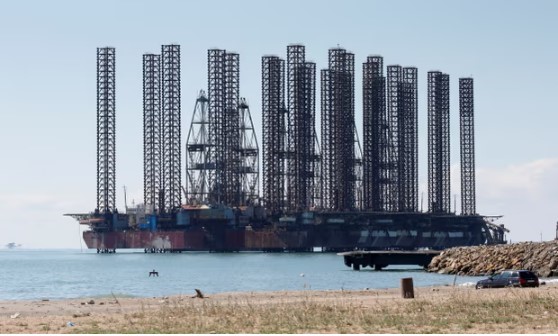
Azerbaijan Proposes $1 Billion Climate Fund from Fossil Fuel Producers at COP29
Azerbaijan, the host of the upcoming COP29 UN climate summit in November, is seeking $1 billion from countries and corporations involved in oil and gas extraction to establish a climate investment fund. This initiative aims to support poorer nations in addressing the impacts of the climate crisis.
The newly proposed Climate Finance Action Fund will collect voluntary contributions from fossil fuel-producing nations and companies. The funds will be allocated to projects in developing countries that aim to reduce greenhouse gas emissions and enhance resilience against extreme weather events.
Yalchin Rafiyev, the chief negotiator for Azerbaijan's COP29 presidency, stated: "Traditional funding mechanisms have failed to meet the climate crisis challenges adequately. Therefore, we are taking a different route. This fund will be supported by contributions from fossil fuel producers and will engage the private sector. All developing nations will be eligible to receive support from the fund."
However, participation in the fund is voluntary, with no enforceable mechanisms to compel major greenhouse gas emitters to contribute. This approach falls short of the mandatory levy on fossil fuels that some activists have advocated. Bronwen Tucker from Oil Change International criticized the initiative, saying, "This is a dangerous diversion from the strong new climate finance goals and national plans that COP29 must ensure for a fair, comprehensive, and swift phase-out of fossil fuels."
Despite these criticisms, the establishment of the fund at COP29 marks a pioneering effort within UN climate negotiations to associate fossil fuel producers with the responsibility to support developing countries in coping with climate change consequences.
Harjeet Singh, global engagement director at the Fossil Fuel Non-Proliferation Treaty Initiative, remarked, "The announcement of this fund aligns with long-standing demands to hold the fossil fuel industry accountable. However, it should not be used as an excuse for continued oil, gas, and coal extraction. The fossil fuel industry, having caused the climate crisis, must be penalized appropriately to fund the transition and address climate damages."
Azerbaijan aims to secure at least $1 billion from a minimum of 10 countries and major companies to establish the fund, which will be based in Baku. The oversight board will include representatives from contributing entities and will operate independently from existing multilateral development banks like the World Bank.
Tucker further commented, "Polluters should pay for their climate crimes on a scale of trillions, not through a $1 billion voluntary fund that gives Big Oil a say in decision-making. Fossil fuel interests have systematically obstructed necessary climate solutions and should not have a seat at the table."
While Azerbaijan has pledged to contribute to the fund, it has yet to specify its exact contribution. No other countries have committed to the fund so far. The fund will strictly invest in renewable energy projects, with all profits reinvested to prevent private sector and governmental profit-taking.
Bob Ward, a policy director at the Grantham Research Institute on Climate Change and the Environment, cautioned, "The Climate Finance Action Fund could be perceived as an attempt to ‘climate-wash' if it serves to ease the pressure to phase out oil, coal, and gas."
Additionally, Azerbaijan reiterated its desire for COP29 to be a "peace COP" amid ongoing global conflicts. UN climate chief Simon Stiell, currently in Grenada where his relatives' homes were damaged by Hurricane Beryl, urged all countries to strengthen their emissions reduction plans and support the nations most affected by the climate crisis. "The COP process represents humanity's best chance to address the climate crisis, achieve decarbonization, and build climate resilience," he stated. "This process has yielded results, as we have witnessed."